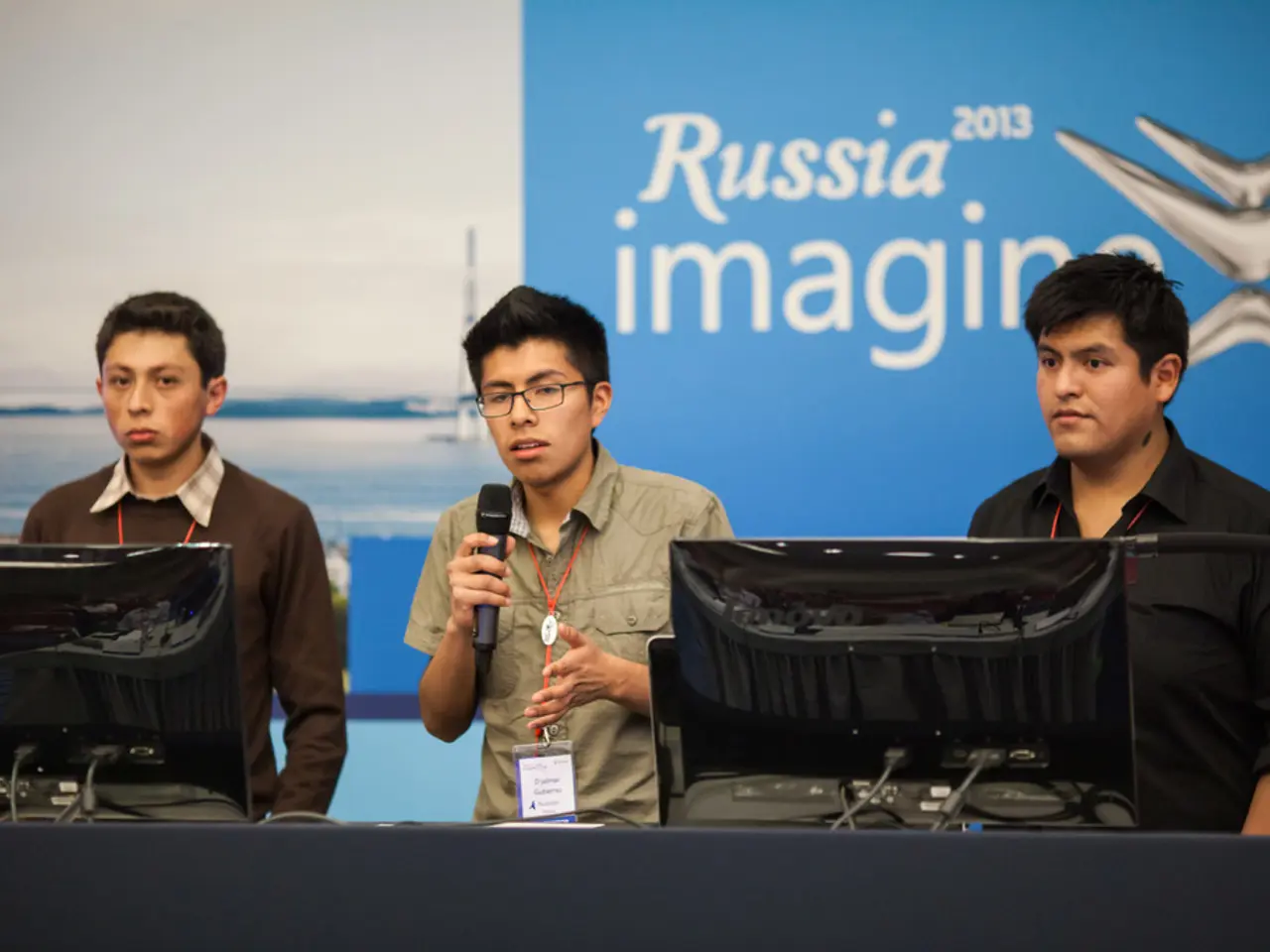North Korea's Undercover Cyber Intrusion - The Deceitful IT Employee Ruse Unveiled
In a startling revelation, it has been exposed that North Korean operatives have infiltrated over 100 American businesses, including Fortune 500 firms, by posing as remote IT workers using stolen and fabricated identities. This scheme, which targeted sensitive U.S. companies, including defense contractors, compromised sensitive commercial data, posing a direct threat to national security.
The operatives, who worked remotely for several years, used a variety of tactics to gain employment. They used stolen American identities to pass hiring processes and background checks, partnered with American accomplices who created front companies and fraudulent websites to lend legitimacy to the fake remote workers, and set up laptop farms in the U.S. to manage the laptops issued by companies for remote work. Furthermore, they employed sophisticated AI tools to navigate interviews and screening processes.
The operation resulted in the theft of intellectual property, money, and virtual currency, with over $900,000 in cryptocurrency being laundered. The industries targeted included defense contracting and blockchain/crypto startups, resulting in thefts of technical data and long-term competitive challenges.
The revelations underscore the vulnerabilities created by remote work, especially in the post-pandemic era. Organizations employing remote IT workers need to adopt multilayered cybersecurity strategies, combining technical, procedural, and legal defenses, to protect sensitive assets and intellectual property from infiltration and theft.
To improve cybersecurity in remote work environments, stronger identity verification is necessary to confirm bona fide candidates beyond just resumes and standard online interviews. Enhanced background checks and due diligence, especially for remote hires, are essential to detect stolen or fake identities. Tightened access controls, such as smart contract access management for blockchain firms and insider threat modeling, are also crucial.
Compliance with international financial rules, such as the FATF Travel Rule, can better track suspicious financial activities. Monitoring and regulation of laptop farms and front companies can prevent physical points of compromise in remote work setups. Government and corporate collaboration with law enforcement is vital to identify and dismantle these schemes through indictments, device seizures, and account freezes.
The case demonstrates that remote work cybersecurity requires continuous adaptation to emerging threats from nation-state actors leveraging globalized workforces for covert operations. Regular auditing of employee behaviors and access logs is essential, and partnering with global verification agencies can strengthen hiring processes for remote international workers.
The operation, dismantled by the U.S. Justice Department in 2025, capitalized on the remote work boom to bypass in-person verification. It underscores the need for evolving defenses in the era of remote work, as insider threats now come from foreign operatives as well as disgruntled employees. The potential military vulnerabilities exposed due to the targeting of defense contractors serve as a stark reminder of the risks associated with such infiltrations.
Sources: [1] Politico Article on the topic [2] Various news articles regarding the operation [3] U.S. Justice Department press release on the dismantling of the operation [4] Reports from cybersecurity firms involved in the investigation
- The revelation that North Korean operatives infiltrated American businesses, including those in the defense and blockchain sectors, highlights the importance of robust cybersecurity in remote work environments.
- To protect sensitive assets and intellectual property, organizations should adopt multilayered cybersecurity strategies that incorporate technical, procedural, and legal defenses.
- Strengthening identity verification, conducting enhanced background checks, and implementing tightened access controls are crucial measures for securing remote work setups.
- As nation-state actors increasingly leverage globalized workforces for covert operations, continuous monitoring, auditing of employee behaviors, and partnering with global verification agencies can fortify hiring processes for remote international workers.




